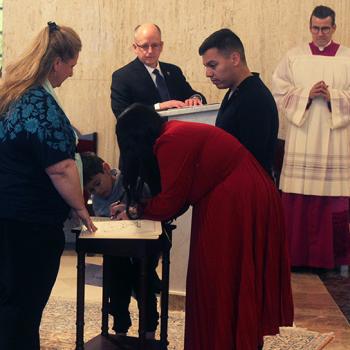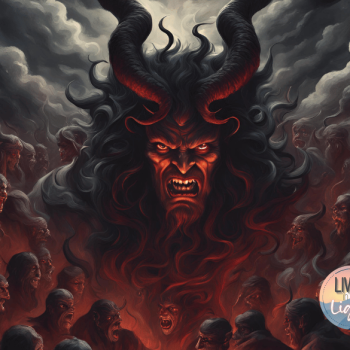Editors' Note: This article is part of the Patheos Public Square on the Future of Faith in America: Eastern Religions. Read other perspectives here.
The 2015 Pew report offers evidence of the erosion of classic strongholds of faith in America — mainline Protestant churches and Roman Catholicism — which likely comes as no surprise for pastors and bishops who have seen church attendance decline, donations diminish, and schools and parishes closed or consolidated. The report offers data but no etiology, no causal sequence to account for diminished public commitment to classic, institutional church organizations.
The erosion of public commitment to such organizations is a complex phenomenon involving multiple causes, some of which I can only suggest here, such as an increasing fragmenting of traditional parish communities; greater diversification of relationship, marriage, and family patterns that renders essentialist notions of "traditional" patterns of relationship and family as quaint if not antiquated; the rise of broader social networks; and a robust cultural pluralism that, in the marketplace of ideas, competes for one's core intellectual commitments. While these are all sociologically significant, the erosion of public commitment to traditional religious organizations surely includes the impact — at least in the Catholic Church — of the pedophilia scandal and its cover-up, institutionalized sexism, hierarchical patterns of control, and an ultimately hypocritical attitude to moral and sexual behavior. For example, divorced women and men who remarry are precluded from the Lord's table, but writer A.W. Richard Sipe, a therapist and former monk, estimates that at any one time only 50 percent of priests practice celibacy; while homosexuality is branded as an "intrinsic evil," notorious reports of gay orgies have embroiled the Vatican in yet another scandal, and Sipe estimates in any case that 15 percent of priests are engaged in homosexual relationships at any one time.
It appears that the faithful are voting with their feet.
Another way of saying this is that there is a severe disconnect between longstanding religious organizations and their flock. The classic metaphor is telling. Sheep are not the brightest mammals, and, owing to their dim wits, need an "alpha" figure — whether shepherd or sheep dog — to lead them.
As a historical note, the Church in America, particularly the Roman Catholic Church, did something radical during its history in the United States, which ultimately has contributed to the Church's slow but increasing marginalization: it educated its flock. Believers were trained to think critically and to think for themselves. As a result, many Catholics were not persuaded by paternalistic moral theologies in the late 20th century that condemned birth control, remarriage, masturbation, and gay love, not to mention the exclusivist dogma, eventually modified by Vatican II, decreeing no salvation outside the (Catholic) church (extra ecclesiam nulla salus).
Such exclusivism remains a central position in Christian fundamentalism and in some versions of evangelical Christianity (as well as in extremist versions of Islam, with disastrous real-world outcomes), yet it hardly stands the test of logic and compassion. If God is a God of love, how is it coherent and consistent to hold eternal damnation for those outside organized Christianity? Moreover, how is it coherent or just to hold that any sin, no matter how heinous, committed in the limited coordinates of time and space (executed with complex causal antecedents which vitiate psychological freedom in any case), merits eternal and unlimited torment and damnation?
Currently, the Catholic Church is enjoying a genuine upsurge of morale by the leadership of Pope Francis, but it remains to be seen if the real-world love and life experience of lay persons and women religious will have any substantive impact on classic teaching on sexual morality, relationships, and the role of women in the Church. It would not be surprising that unaligned Christians, ex-Catholics, or agnostics would be enthusiastic over Pope Francis, yet quite happily remain unaligned, ex-Catholics, or agnostics, owing to the historical and cumulative burden imposed on lay persons. In this case, the pope, like the Dalai Lama, may become a beloved cheerleader for the noblest human aspirations, but with perhaps little appreciative impact on institutional membership rolls.
Nevertheless, if humans are, as the scholar Mircea Eliade argued, homo religiosus — that is, the human person is intrinsically oriented to the sacred — where will the unaligned, ex, and agnostic look to express existential longings that go far beyond transient and superficial pleasures? Where will they go — or, rather, where are they already going? — to meet a spiritual hunger, the longing for something more, something that decisively transcends mundane experience and is saturated with meaning, being, and value?




